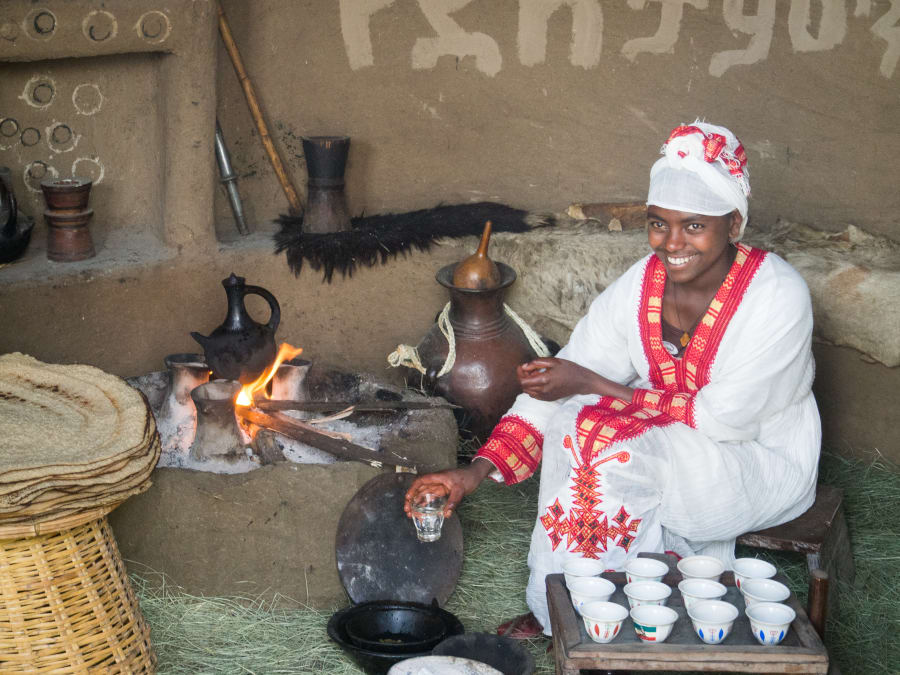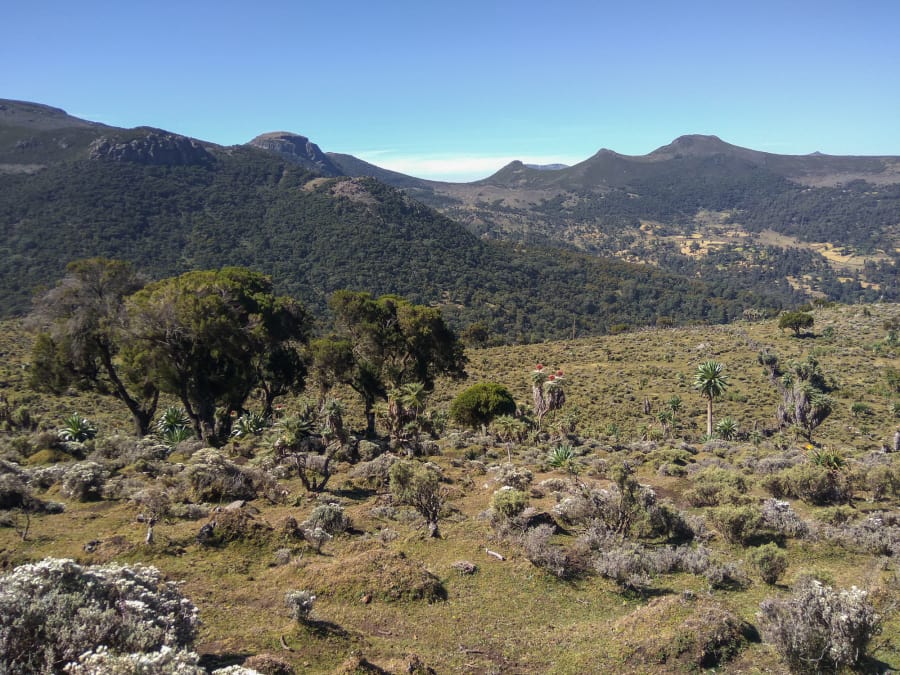Having spent 7 days in the wilderness of the Ethiopian Bale Mountains, we reflect on what food to take camping. On top of that, we give an account of the unique animals and plants one may find only in this part of the world.
This is the fourth part of a seven-part-long story about our week-long trail riding adventure in the Bale mountains. Read the first part here.

Day 3
For breakfast we enjoyed the best milk I’ve ever tried in my life. The milk was organized by the cook after our inquiry in the evening and was delivered in a beautiful handmade jar. It was still warm and smelled like herbs. I suggested that Balti should try it in spite of his milk intolerance. Strangely, Balti didn´t have any of the problems with Ethiopian milk he usually has with the German one. It is said that sterilizing and homogenizing milk also kills all the enzymes that should help you digest the milk. And I suppose the local cows were neither treated with growth hormones nor antibiotics.
We brought most of our food supplies from Germany: oats, nuts and dried fruit, rice, buckwheat and lentils, black chocolate bars. It was a smart decision as this type of food is actually quite expensive in Dodola and the choice was rather small. Though, you definitely may purchase supplies like rice and pasta in the town of Dodola - where the trek starts. And as you see, you may get the best quality milk as well as home-made bread from the locals in the Bale Mountains.
In every second camp, the guide and the cook had their coffee made for them. And in case you didn´t know, Ethiopia has one of the best coffees in this world and is apparently the place where coffee originates from. Making coffee is also quite fascinating. At first, the coffee is roasted in a pan over the fire. It is good to do it outside as the green coffee beans start producing a cloud of smoke. When I repeated the ceremony in Berlin, my smoke detector raised the alarm. The beans are also smelly as hell. For that reason, the Ethiopians burn a substance called etan on the coals while roasting the beans. To give you an idea, etan smells like the incense they burn in Catholic and Orthodox churches. The roasted beans are ground into a powder inside of a special long and hollow tube. The powder is put into boiling water. And voila! the best coffee is ready. It is usually consumed in very small cups - it is as strong as espresso. By the way: wild forsest coffee grows in the local woods.

We planned to stay at that campsite for another day and we were definitely happy with our decision: after two days of horseback riding, our butts ached already even from sitting and the stirrups had rubbed our skin down to the flesh. A day of rest would allow our bodies to recover for the days to come.
On that day we went for a hike. At first, we walked up a hill, forested with trees and bushes we had never before seen. Apparently 23 of these grow nowhere else on the planet but in the Bale Mountains.
After two hours of walking uphill, we reached a plateau similar to the one we had crossed the day before. The vegetation consisted only of dense bushes, cut by corridors of stony paths.
Sometimes we spotted mountain nyalas – animals similar to antelopes. We usually ended up startling them so they turned and quickly disappear jumping over the bushes.
The other side of the plateau opened up to a jaw-dropping view over the other side of the mountain range.



Back at the base camp, we hurried to make shower arrangements, before it got freezing cold. Showering was vital: we hadn´t taken a shower for 3 days by then and the dust all around seemed to penetrate into our pores. My hair had turned into natural dreadlocks.
The shower arrangements were as follows: a local teenage girl brought us a bucket of warm water we could pour onto ourselves with a smaller pot in a shower cabin close to the outhouse. The guide asked us to pay something like 1 to 2 EUR per bucket.
During supper, we were joined by an elderly man and a teenage girl. The elder man was chatting with the guide and his friend the cook and the girl was sitting in the corner, pulling a scarf over the lower part of her face when we were looking at her – the villagers in Dodola are Muslims and especially here, in the mountains, the women are often veiled.
We hope you make use of this article and the insights about food to take camping in this part of the world. Find out more about trekking in the Bale Mountains in Ethiopia in the next post.
it is you who keeps our site running and helps us grow and bring you more stories from our trips and the local people we encounter. We believe that telling these stories brings the world closer together and is hence a way to make a positive change! Please support us with a small donation on the kofi platform. Even a small contribution makes a big difference!
